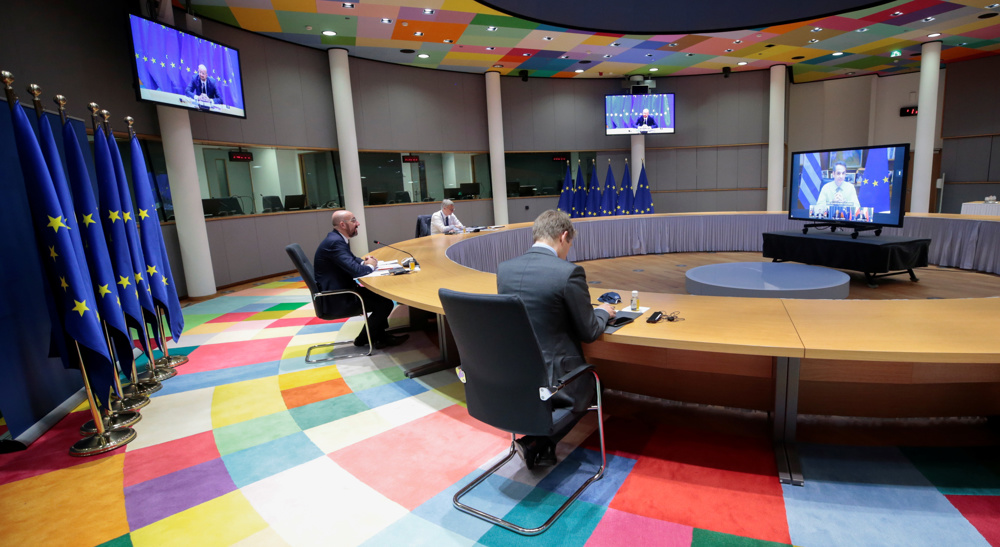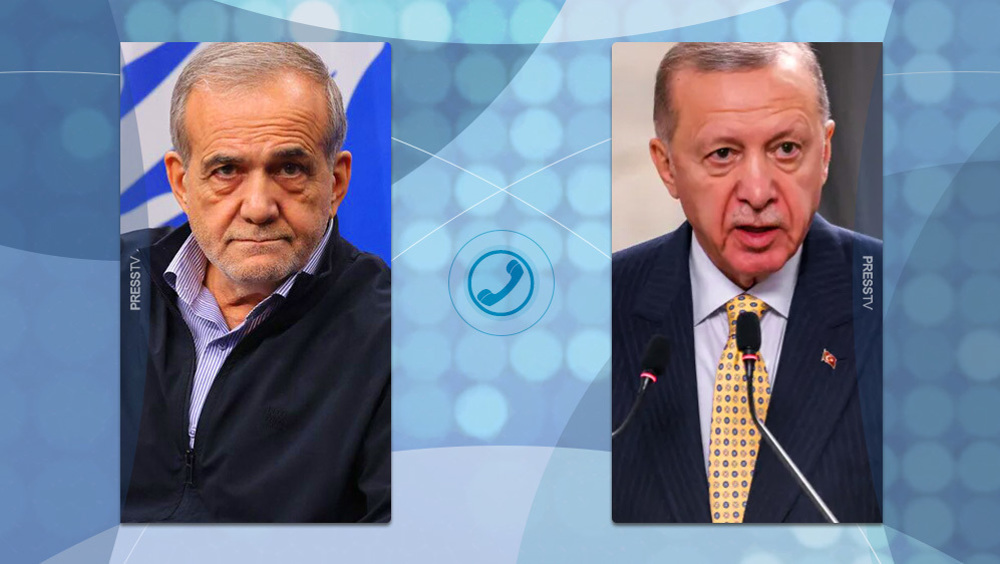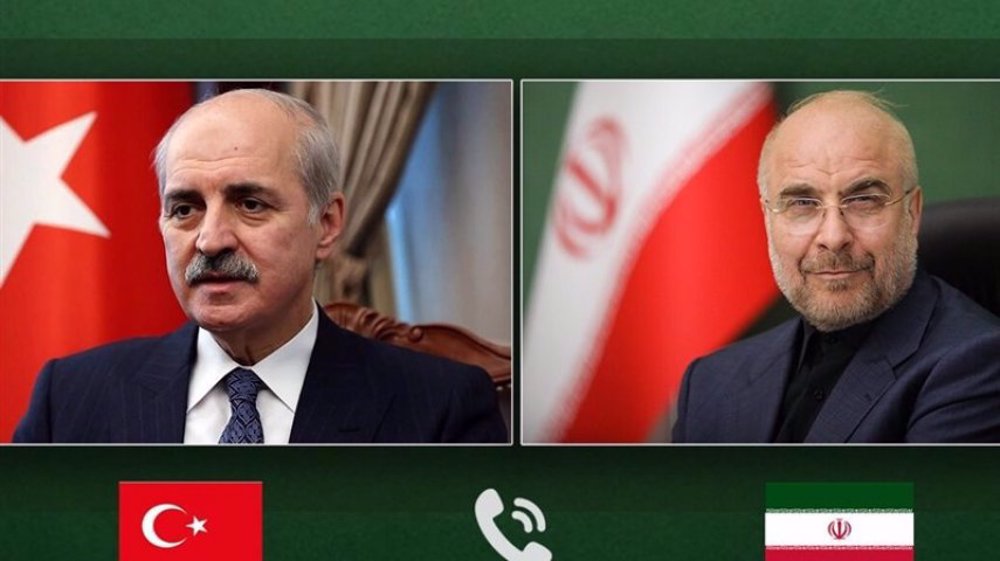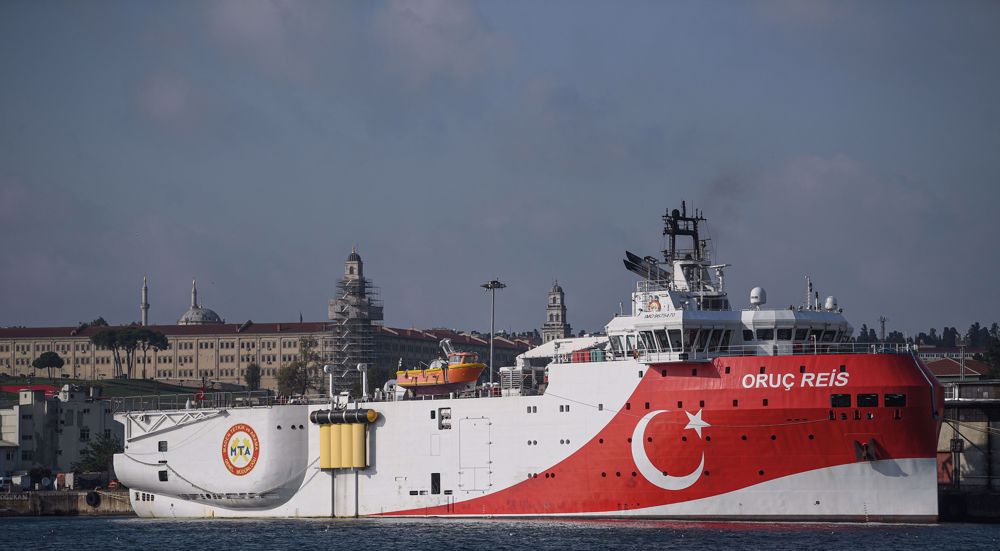EU to decide on sanctions as Turkey highlights 'sovereign rights'
The European Union, which has for long been involved in an ongoing maritime row between Turkey and Greece in the eastern Mediterranean Sea, is now assessing ways and means of penalizing Ankara for refusing to stop exploring in the disputed waters.
Foreign Ministers of EU states will meet on Monday to evaluate grounds for sanctions, but the final decision will be left for when EU leaders convene a summit on Thursday.
“I’m not aware of any EU government challenging the view that the situation is worse than October and that leaders should consider the consequences,” said a senior EU official. “We have been requesting a change that has not come.”
Turkey and Greece, both NATO members, have been embroiled in a long-running territorial dispute in the eastern Mediterranean over the region's resources.
Earlier this year, Turkey dispatched the Oruc Reis seismic research vessel and warships escorting it to prospect for energy resources in an area in the sea that is disputed with Greece, infuriating Athens and creating a weeks-long diplomatic crisis.
Brussels, which has sided with EU member Greece, threatened Ankara with sanctions back in October.
Turkey’s move in late November to return the exploration vessel to port has calmed tensions, but EU says Ankara’s drill and survey ships have continued to work in contested waters; a move which, according to Greece, makes formal talks with Turkey over the issue impossible.
Germany, the current holder of the EU’s six-month presidency, holds the key to whether sanctions will go ahead.
“Putting the (Oruc Reis) exploration ship back to sea straight after the (October) summit was not taken kindly by member states that put a lot of effort in with Turkey and Greece,” said an EU diplomat. “There are limits even to German patience.”
France and the European Parliament have called for imposing sanctions on Turkey.
Ankara, however, has rejected threats of sanctions, describing them as” unconstructive.”
Ankara: No compromise on sovereignty
Turkey’s Foreign Ministry said in a statement on Saturday that Ankara will never compromise its sovereign rights.
The statement was made in response to an article by Greek Foreign Minister Nikos Dendias in the newspaper Ta Nea.
"No sanctions will ever make Turkey compromise its sovereign rights be in Meis/Kastellorizo or 10 nautical miles airspace," Ankara's statement said.
The ministry called Greece "the spoiled child of Europe,” which aims to provoke EU sanctions on Turkey based on its "maximalist, illegitimate maritime boundary, and airspace claims.”
“Greece should engage in unconditional dialog with Turkey, sooner rather than later,” said the statement.
President Recep Tayyip Erdogan has formerly called on Greece to enter talks or face “painful” consequences.
Trump administration moved to cut funding for ICE body cameras
VIDEO | Qeshm: Iran’s biggest island boasts 1st UNESCO geopark in region
VIDEO | People in Spain’s Granada mobilize against Gaza genocide, US imperialism
VIDEO | Thousands protest in Brussels over austerity measures
Kata’ib Hezbollah asks fighters to prepare for 'war' in support of Iran
Israeli warplanes conduct new aggressions across southern Lebanon
VIDEO | Possible US-Israeli aggression on Iran
VIDEO | US deadly protest crackdown















 This makes it easy to access the Press TV website
This makes it easy to access the Press TV website